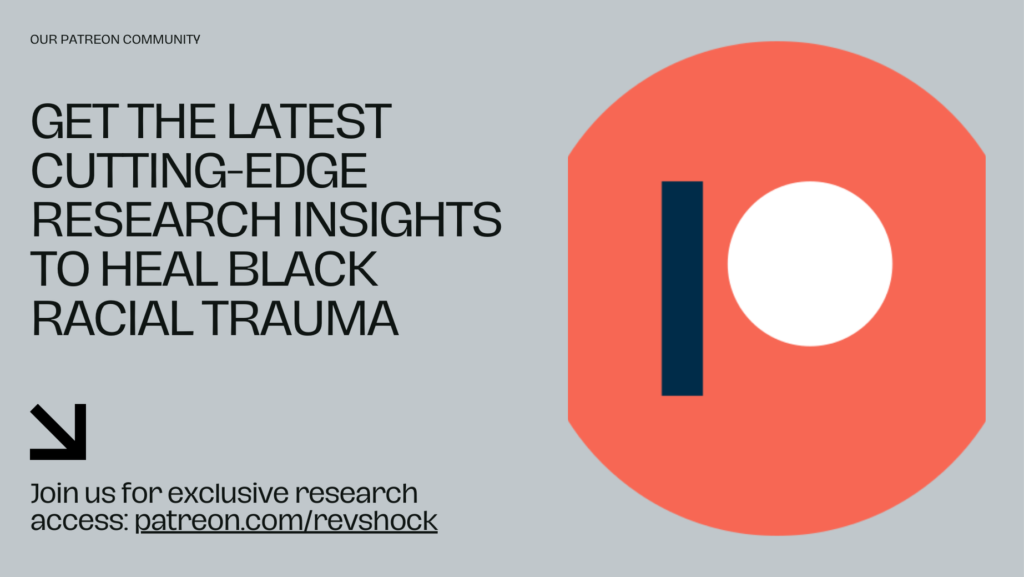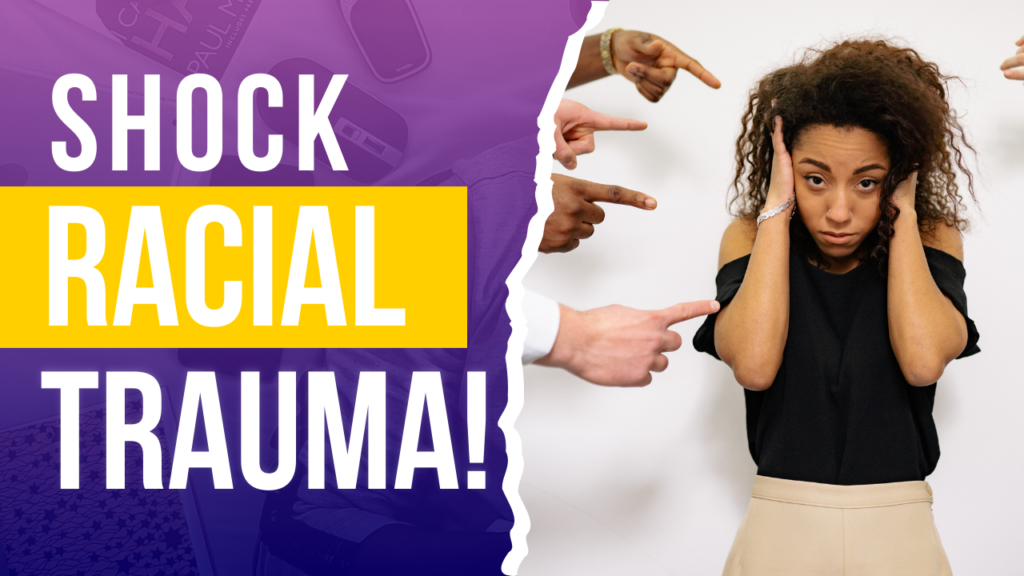
Researched and Curated By Rev. Dr. Philippe SHOCK Matthews
(Black Trauma and Mental Health Specialist | Prompt Eng | GPT Dev | Research Scientist | Africana Phenomenologist | Black AI Corsortim co-Founder | Black Mental Health Podcast Host)
I have personally noticed how docile and compliant Black people have become over my almost six decades of being a Black man in America. I remember how we used to fight racism, but now we simply try to avoid it. Recent research has shed new light on how historical trauma shapes behavior across generations, particularly within Black communities. A groundbreaking paper examining the biological and social determinants of behavioral adaptation offers fascinating insights into how communities respond to sustained historical trauma. Let’s explore what this means for our understanding of intergenerational trauma and community resilience.
The Science Behind Behavioral Adaptation
One of the most intriguing aspects of this research is how it connects biological studies with human behavior. Scientists have long studied how animals adapt their behavior in response to environmental pressures. From honey bees to cattle, research shows that populations can become more “docile” or adaptive over time in response to sustained pressure or stress.
But what does this mean for human communities? The research suggests that similar mechanisms might be at work in human populations that have experienced historical trauma. Just as animals develop adaptive behaviors that help them survive in challenging environments, human communities may develop particular behavioral patterns in response to sustained social and historical pressures.
Understanding Different Types of Trauma
The research identifies four key types of trauma that can influence community behavior:
- Genetic Trauma: This isn’t just about DNA – it’s about how traumatic experiences can leave “molecular scars” that affect how genes are expressed in future generations. Think of it as your ancestors’ experiences leaving subtle but lasting marks on your biological blueprint.
- Decontextualized Trauma: These are traumatic experiences that might not be immediately obvious to outsiders. For Black professionals in predominantly white workplaces, this might include dealing with constant microaggressions or feeling pressure to “represent” their entire community.
- Vicarious Trauma: This occurs when trauma is experienced indirectly, through witnessing or hearing about others’ traumatic experiences. In the age of social media and viral videos of racial violence, this form of trauma has become increasingly prevalent.
- Ambiguous Loss: This refers to losses that lack closure or clear resolution. In Black communities, this might include the impacts of mass incarceration on families or the ongoing effects of displacement from historical neighborhoods.
Healthcare and Mental Health Implications
One of the most significant findings concerns how these forms of trauma affect healthcare-seeking behaviors. The research shows that Black Americans often prefer seeking support from religious leaders and community elders rather than mental health professionals. This isn’t just about personal preference – it reflects deeper historical and cultural patterns shaped by generations of experience with medical institutions.
Interestingly, the research also looks at how this trauma affects healthcare providers themselves. Mental health professionals working with traumatized populations often experience their own form of vicarious trauma, which can affect their personal relationships and professional effectiveness.
Community Resilience and Adaptation
Perhaps the most powerful aspect of this research is its recognition of community strength and resilience. While acknowledging the real impacts of historical trauma, the research also highlights how Black communities have developed sophisticated support systems and coping mechanisms. These aren’t just survival strategies – they’re testament to the incredible resilience of communities that have faced sustained historical challenges.
Some key examples of this resilience include:
- Strong community networks that provide emotional and practical support
- Cultural practices that help maintain identity and continuity across generations
- Adaptive strategies that allow for success while preserving psychological well-being
Why This Matters
Understanding these patterns is crucial for several reasons:
- Better Mental Health Support: By understanding how historical trauma manifests, mental health professionals can provide more effective, culturally sensitive support.
- Workplace Understanding: Organizations can better support Black employees by recognizing how historical trauma might influence workplace behavior and interactions.
- Community Empowerment: Communities can better understand their own patterns and strengths, building on existing resilience while addressing challenges.
- Policy Implications: Policymakers can develop more effective interventions by understanding how historical trauma continues to influence contemporary outcomes.
Moving Forward
This research challenges us to think differently about how communities adapt to historical trauma. Instead of seeing certain behavioral patterns as simply personal choices, we’re invited to understand them as sophisticated adaptations to complex historical and social pressures.
For individuals, this might mean:
- Understanding how your own behaviors might be influenced by historical patterns
- Recognizing the strength in your community’s coping mechanisms
- Seeking support in ways that feel culturally appropriate and meaningful
For organizations and institutions, this research suggests the importance of:
- Developing culturally sensitive approaches to mental health support
- Understanding how historical trauma might influence workplace dynamics
- Creating spaces that acknowledge and support different ways of coping and healing
Conclusion
The impact of historical trauma on Black communities is complex and far-reaching, but so too is the resilience these communities have developed in response. As we understand these patterns better, we can work toward healing approaches that honor the reality of historical trauma and the strength of community resilience.
This research reminds us that healing from historical trauma isn’t just about addressing past wounds – it’s about recognizing and building on the incredible strength that communities have developed in response to challenges. This understanding can help guide more effective and respectful approaches to supporting community well-being and growth as we move forward.
This blog post is based on recent academic research examining the biological and social determinants of behavioral adaptation in African American communities. While the original research is highly technical, this post aims to make its key insights accessible to a general audience while maintaining the integrity of the findings. Read original paper: Biological and Social Determinants of Docility: A Cross-Species Analysis of Trauma Response in African American Communities https://t.ly/3tkTz
———————
If nothing is wrong with you and something happened to you…are you ready to find out what to do about it? Shock Trauma Spiritual Counseling Discovery Call https://t.ly/VJWqJ | BlackTraumaGPT.com: Beginner’s User Guide https://bit.ly/4enIlvc | Programming chatGPT for Black Self Mental Health, Trauma, and Healing https://amzn.to/47P8MXK
May These Words Of Power Inspire You To Greatness!
Nothing Is Wrong With Black People…Something Happened to Black People by The Metaphysical Morpheus — AVAILABLE ON SPOTIFY https://spoti.fi/3mSnPIt, ITUNES & APPLE MUSIC https://apple.co/38wzebR, AMAZON MUSIC https://amzn.to/3pofTAy and IHEARTRADIO] ♫ https://ihr.fm/2NTxYsI
———————
Enjoying Our Content?
Become a member of our Patreon to get the latest research on Racial Trauma! https://www.patreon.com/revshock. Or buy Rev. SHOCK a Coffee! https://bit.ly/3yg5D7A


Book A Discovery Call
Are you ready to SHOCKtrauma? Click HERE now to book a discovery call with Rev. Dr. Philippe SHOCK Matthews

Get Social with Doc SHOCK:
PATREON: https://t.ly/mjksf | REV. DR. SHOCK (PERPLEXITY PAGE): https://t.ly/ppjwh | SOLO: https://solo.to/revshock | BIO: https://t.ly/Ko_y_ | BLOG: https://t.ly/j6bh0 | PODCAST: https://t.ly/cB5GD | ENDORSEMENT: https://t.ly/jFErO | THREADS: https://t.ly/SoKkT | IG: https://t.ly/XsN8f | FB: https://t.ly/R3r9Y | X: https://t.ly/iJ-wy | LINKEDIN: https://t.ly/GZ0pe | TIKTOK: https://t.ly/zfp60 | BLACK TRAUMA GPT: https://t.ly/vswbs | BLACK AI CONSORTIUM: https://t.ly/uiRZN | BOOKS BY PM: https://t.ly/vvHMd
